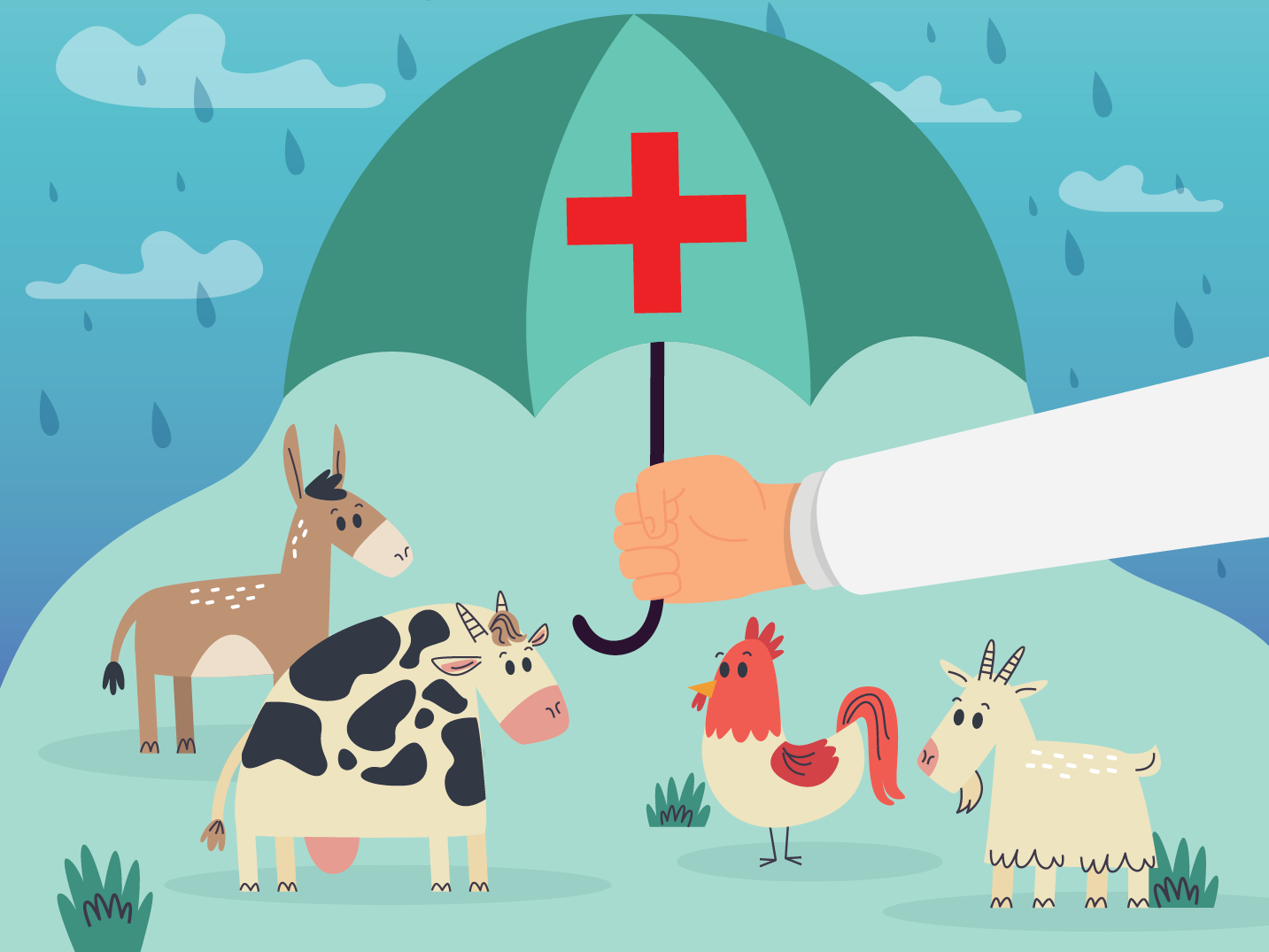Healthy animals for healthy people
The World Organisation for Animal Health (WOAH) has estimated that globally, animal production losses as a result of infectious diseases can be as high as 20 %. Outbreaks of epidemic diseases such as African swine fever, or avian influenza, and endemic diseases like bovine tuberculosis can cause trade disruptions that affect the global economy. More serious still, certain pathogens may be transmitted between animals and humans, so-called zoonoses. According to WOAH, 75 % of emerging animal diseases can be transmitted to humans. Used appropriately, antimicrobials are very effective in controlling disease. However, they are a squandered resource. Problems with antimicrobial resistance (AMR) have arisen due to persistent overuse or misuse of antibiotics. An ECDC study has estimated that 33 000 deaths per year in the EU alone can be attributed to antibiotic resistance, adding to the EU health bill by EUR 1.5 billion annually. To curb the rising tide of drug-resistant pathogens, EU research projects are developing in situ, accurate testing for diseases before therapeutics are prescribed. Accurate and rapid disease detection must be available for the sustainable protection of animal health. Research and innovation for better prevention and control of animal diseases contributes massively to sustainable animal farming and food security. The initiatives in this Results Pack address a range of elements of EU policies. Notable is the European Green Deal and its ‘Farm to Fork’ strategy aiming to position the EU as a sustainable producer of high quality and safe food products. The EU One Health Action Plan against AMR will strategically reinforce the research agenda on AMR and enable the EU to actively promote global action and play a leading role in the fight against AMR. Another leading objective of the EU One Health Action Plan is to make the EU a best practice region. Moving away from antibiotics is challenging and must be accompanied by changes in animal husbandry and new therapies. In other words, a totally new mindset has to be applied to farm practices and raising animals for food. The result will be a farming system that protects the health of both animal and human, offers consumers high quality products, and delivers a more sustainable approach to food production. To effectively monitor and control disease, affordable, rapid testing for a range of viral and bacterial diseases have been developed by SWINOSTICS, VIVALDI and RAID. To address the issue of AMR, projects DISARM, HealthyLivestock, PIGSs and PHAGOVET are all speeding up the food industry’s transition towards prevention, biosecurity, precision use of antibiotics, and the use of alternatives to antibiotics. As a sound base for all research, five of the projects have expanded the knowledge on a range of animal diseases. DIGDEEP is studying the genetics of avian influenza and DELTA-FLU is researching the dynamics of the spread of the virus. VetBioNet is advancing networks to tackle emerging epizootic and zoonotic diseases. SIRCAH has developed roadmaps and collaboration for animal disease control. Finally, of paramount importance is that the new generation of students has up-to-date knowledge, so the HONOURs project has provided training to 15 promising young researchers at the interface of veterinary and human health, virology, biostatistics, and pathogen discovery.



